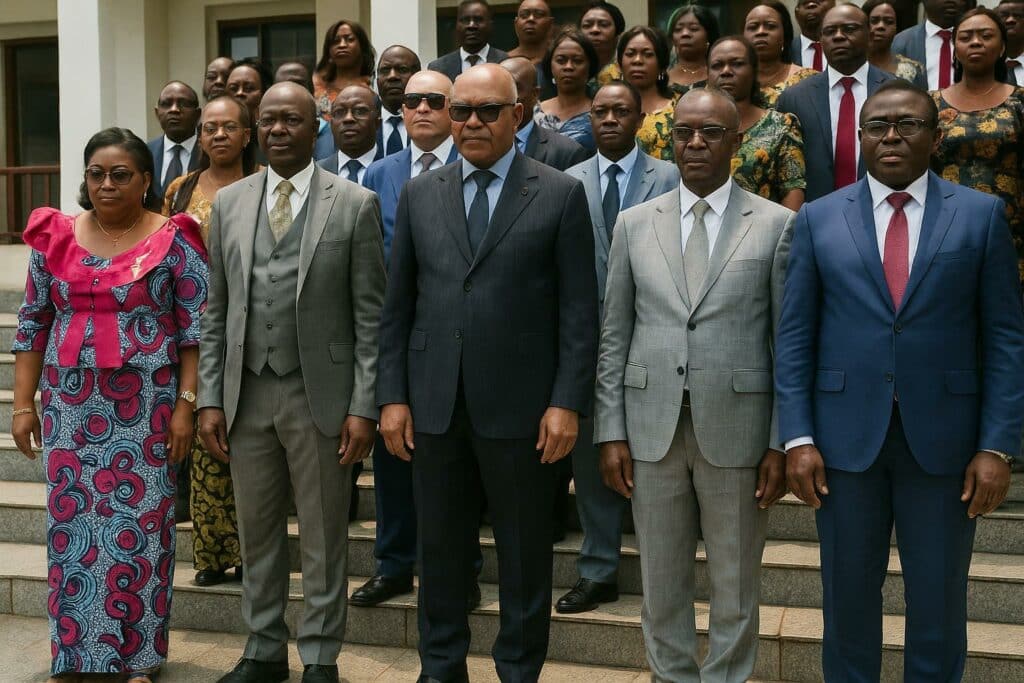A First Plenary for the Newly Elected Commissioners
For four concentrated days, from 22 to 25 September 2025, the National Human Rights Commission of the Republic of Congo (CNDH) held its inaugural ordinary session at the institution’s headquarters in Brazzaville. Chaired by its president, Casimir Ndomba, the gathering marked the first occasion on which the commissioners, elected in May, have deliberated as a full body. The atmosphere in the plenary hall was described by participants as both “studious and solemn”, an observation that matched the weight of the agenda: the adoption of the commission’s foundational texts and the crafting of its first strategic vision.
Five Specialised Sub-Commissions at the Core
Central to the debates was the establishment of five specialised sub-commissions. Although their detailed mandates will be refined in the coming weeks, the president made clear that each unit is intended to serve as an operational pillar capable of investigating, mediating and advising on issues ranging from economic rights to civil freedoms. By deciding to anchor the CNDH’s work in these thematic clusters, the plenary signalled its intention to pass from general proclamations to field-based action. In Mr. Ndomba’s words, the configuration “creates the architecture from which we must now build a reference institution attentive to the concerns of our fellow citizens”.
Financing and Governance Safeguards
Beyond the institutional architecture, the commissioners endorsed an internal rulebook and a financial regulation that they describe as “a genuine instrument of transparency and governance”. The by-laws codify decision-making procedures, conflict-of-interest safeguards and reporting duties. The financial text, for its part, details budgetary ceilings, procurement standards and audit mechanisms designed to reassure both public authorities and external partners. By placing such emphasis on fiscal rectitude, the CNDH meets a recurrent demand of civil-society organisations for openness in the management of public funds.
International Partnerships and UN Backing
The presence of Abdourahmane Diallo, United Nations Resident Coordinator in Congo, underscored the session’s international resonance. Addressing the plenary, Mr. Diallo praised the commission’s “determination to align national efforts with universal human rights standards” and pledged continued technical assistance from UN agencies. Diplomats stationed in Brazzaville note that the CNDH’s roadmap could open avenues for programme financing, capacity-building seminars and data-sharing platforms, provided the new structures deliver measurable results. For the time being, the commission insists that its independence will remain non-negotiable, even as it cultivates constructive partnerships.
Legal Stakes for Social Cohesion
The strategic plan for 2025-2028 situates the CNDH within a broader policy framework favouring justice and social harmony. Mr. Ndomba reminded colleagues that the very creation of the commission “reflects the Head of State’s will to promote justice and cohesion”. He urged the advisers to uphold impartiality and rigour in every inquiry, so as to build citizen confidence and honour Congo’s international undertakings. Legal analysts consulted in Brazzaville observe that, once operational, the sub-commissions could help ease court congestion by offering mediation channels and early-warning mechanisms for potential rights violations, thereby reinforcing the rule of law without overburdening the judiciary.
Next Steps Toward a Citizen-Centric Mandate
At the close of the session, the president called on commissioners “to translate the momentum of these deliberations into lasting practice”. The immediate tasks include finalising the sub-commissions’ terms of reference, recruiting technical staff and initiating outreach campaigns in the provinces. Success will depend on the commission’s capacity to maintain transparency, cultivate trust and demonstrate tangible impact. In the words of a civil-society observer present in the room, the adopted texts now constitute “the springboard from which the CNDH can earn its stripes as a credible guardian of dignity in the Republic of Congo”.

